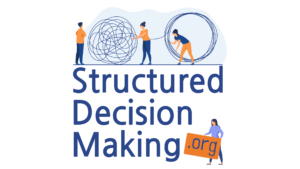Value-Focused Thinking
A value-focused thinking approach involves keeping the focus of attention throughout the decision process on what you hope to achieve. In contrast to an alternatives-driven process, value focused thinking involves first identifying the values at stake in the decision, and articulating them clearly as the decision objectives. These are the things that matter, or the things you want to achieve or avoid. Alternatives are generated by asking “ how could we achieve these objectives”. The evaluation is centered on reporting how well the alternatives perform with respect to each objective. In this way, key value-trade-offs will be exposed. At the core of good decision making is the ability to make informed value-based judgments about key trade-offs.
In a value-focused approach, it is not uncommon to begin with alternatives that may be considered by some as infeasible, or unrealistic. For example, initial alternatives might be simplistic “bookends” that emphasize different values – such as a least-cost approach, or a fish-friendly approach (what would we do if we were only concerned about fish health). These initial alternatives rarely succeed, as they don’t tend to produce a good balance across all objectives, but by relaxing constraints initially and simply brainstorming “what would we do if all we had to worry about was objective x”, creative ideas can be surfaced that would otherwise be overlooked. It’s helpful to think of these initial alternatives as exploratory alternatives that promote collective learning and creative thinking.

